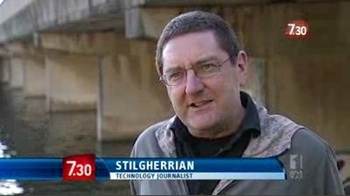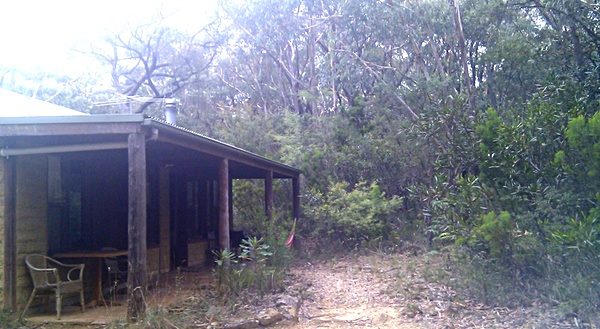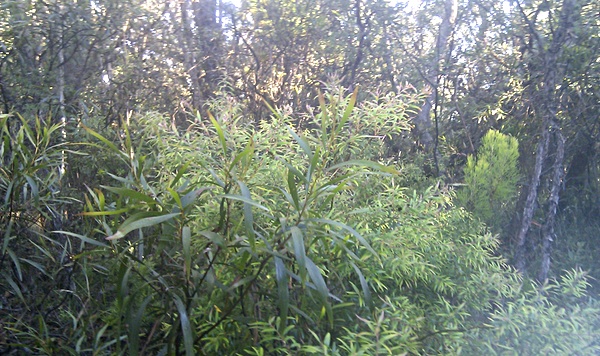As the first of my new-year posts, here’s a list of the most-read posts from 2010.
- HTC Desire to OS X tethering via USB. Hardly the most general article, but it shoes how you can attract website traffic if you have useful how-to information. Of course this article is irrelevant now that the HTC Desire runs Android 2.2, which has tethering as a built-in function.
- Cheap fake tan and fat thighs? Snooki! This is embarrassing, really, but I get traffic to this post because Google Images lists it as one of the first few results for “snooki fat”.
- ICT Election Forum: what questions? This one puzzles me. The post just mentions that the pre-election forum was happening, and I asked people to suggest questions. Maybe they’re really looking for something else.
- Why I’ve deleted my Facebook account, which is self-explanatory.
- Homophobic beat-up by Sun-Herald’s Heath Aston, about a very grubby tabloid attempt to smear a politician.
- Senate to re-open Bloggers versus Journalists. When I write about journalism, it usually gets retweeted heavily through media circles. It certainly makes a difference to website traffic.
- Jetstar, Powderfinger to exploit fan’s enthusiasm, one of my rants against the evils of “crowdsourcing” that’s really just unpaid labour.
- Adam Schwab’s NBN reply, which is Mr Schwab’s response to my article Adam Schwab’s NBN “analysis” arsehattery.
- Time to dump 20th Century “leadership”?. The main point is that you can’t just bolt some sort of “government 2.0 module” onto steam-era bureaucracies and magically bring them into the 21st Century.
- Selling the NBN: couldn’t you do better?. I have no idea why this, of all the things I’ve written about the National Broadband Network, was one of the most-read. It’s certainly not the best.
Just like last year, many older posts also continued to be popular. Indeed, as I worked down the website traffic report, I filled all ten slots in the non-2010 list while managing to find only two stories from the current year. Yet more proof that the more material you have on your website the more visits you’ll get. Don’t delete your old material, people!
However something that worries me is that so many of the items are listed not because people were reading the posts, but because other internet users had hot-linked to the images — that is, included them on another website — or robots attempting to post spam in the comments.
OK, the Top 10 posts of 2010 that weren’t written in 2010.
- 67 Australian SAS captured airbase defended by 1000 (March 2008). I think this one only makes the list because the photo keeps getting embedded in various military geek forums.
- Live Blog: Internet censorship forum, which is only in the list because for some reason or other it was hit heavily by the spambots. Who would read a live blog from a forum back in 2008?
- Julie, I want to make you a star (in a Samantha Fox kind of way) (September 2007) My ode to Julie Bishop, popular because of its photograph of Samantha Fox.
- Hello Kitty, you’re dead, and other surprise products (October 2007) People link to the (fake) photo of the Hello Kitty AK-47. Few seem to realise it’s a joke.
- Apple iPhone parodies (January 2007). Another embedded photo, I reckon. I must make sure my traffic reports filter out that stuff.
- Spaceport America, designed by Foster+Partners (October 2007). I’m puzzled why this one is on the list. Maybe people linking to the photos again?
- Live Blog: Politics & Technology Forum 2009 (February 2009). Another artefact of the spam robits, I think.
- The Madness of Corey Worthington Delaney (January 2008), proving once more that the lowest common denominator wins.
- My new hero: Hideki Moronuki (January 2008). Whenever the work of Sea Shepherd is in the news, people stumble across this post and discover that — shock horror! — I’m no a fan of that organisation.
- Oz soldiers design own recruitment ads (April 2007).
None of that surprises me. The most common searches which brought visitors to my website were “steve irwin jokes”, “stilgherrian”, “heath ledger jokes”, “julia gillard”, “hideki moronuki”, “snooki fat”, “sas”, “fisting”, “snooki is fat” and “hello kitty ak 47”.
You might also like to check out my own selection for what I think were the best posts from 2010, plus the lists for previous years:
![]()




